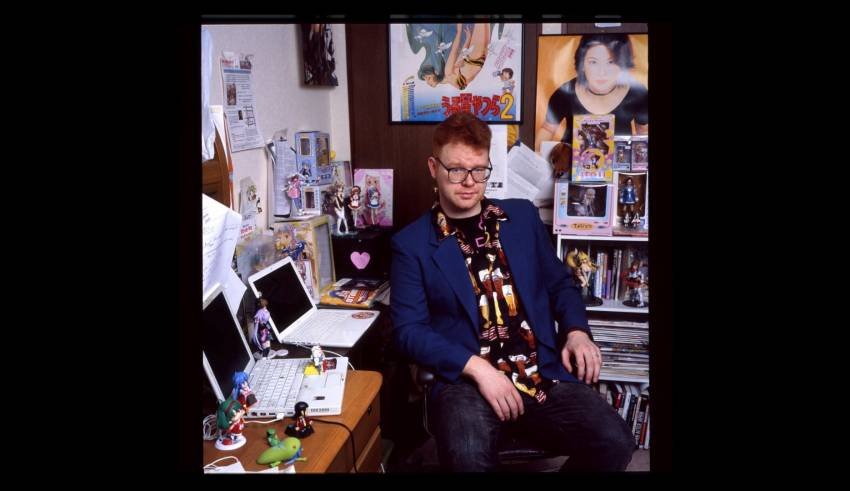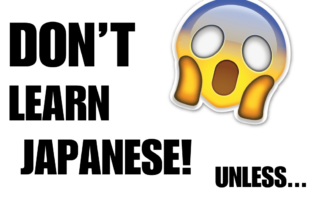
On This Episode of Japan Station
On this episode of the Japan Station podcast, we’re exploring the history of Japanese aidoru (idols) and discussing the dynamics behind one of Japan’s most popular idol groups: AKB48.
About Dr. Patrick W. Galbraith
Dr. Patrick W. Galbraith is a lecturer at Senshu University in Tokyo. He is one of the world’s leading experts on the topic of Akihabara and the related subcultures that are often associated with this famous district of Tokyo. Galbraith is the author of man y books and articles, including Tokyo Realtime (2010), The Otaku Encyclopedia: An Insider’s Guide to the Subculture of Cool Japan (2014), The Moe Manifesto: An Insider’s Look at the Worlds of Manga, Anime, and Gaming (2017), and others. His most recent book, published by Duke University Press Books in 2019, is Otaku and the Struggle for Imagination in Japan.
Topics Discussed
- The emergence of idols (aidoru) in Japan during the 1970s
- Japan’s Golden Age of idols (1980s)
- Seiko Matsuda
- The role Yasushi Akimoto played in the evolution of the modern idol
- The importance of Onyanko Club in the history of Japanese idols
- What led to the end of Onyanko Club
- How the Latin boy band Menudo helped inspire the interchangeable idol system employed by idol groups such as Morning Musume and AKB48
- The success of Rino Sashihara
- The ingenious marketing strategy of Yasushi Akimoto that has led to the massive success of AKB48
- AKB48’s General Election and how it drove CD sales during a time when CD sales were on the decline
- What idols do
- Whether we should think of idols as musicians/singers
- What it means to “idol”
- The connection between idols and fans
- The peculiar location and composition of the AKB48 Theater in Akihabara
- How the success of AKB48 helped spark a surge in the number of independent and “underground” (chika) idols
- The massive variety that exists in the independent idol scene
- How the coronavirus pandemic has affected idol groups and how idols are adapting
- What a chekki is
- Th effects of the coronavirus pandemic on maid cafes in Akihabara
- AKB48 and the Tokyo 2020/2021 Olympics
- How Yasushi Akimoto’s idol groups have been evolving in recent years to appeal more to women
- Overwork and exploitation in the world of idols
- The case of Maho Yamaguchi
- Why so many idols have great difficulties after they “sotsugyō” (leave the group)
- The success of Atsuko Maeda
- The short-lived Pink Lady show that aired in the U.S. on NBC in 1980
- And much more!
Note: The conversation on this episode was recorded on April 24, 2020 (JST).
Listen to Japan Station on
Apple Podcasts Google Play Stitcher Spotify Tunein iHeartRadio PodBean Overcast
Support on Patreon
If you enjoy Japan Station and want to ensure that we’re able to produce more episodes, then please consider becoming a patron on Patreon.com. For a minimum pledge of $1 a month you’ll get access to extra blog posts and additional input on future content. You’d also receive Tony’s eternal, profound, and undrying gratitude.
Links, Videos, Etc.
The book on which much of the conversation heard during this episode was based is called AKB48 and was written by Dr. Patrick W. Galbraith and Dr. Jason G. Karlin. You can purchase it via the Amazon affiliate link below. A Kindle version is available.
AKB48 is part of a series of books published by Bloomsbury that is called 33 1/2 Japan. If you would like to purchase any of these, you can use the Amazon affiliate links below.
- Yoko Kanno’s Cowboy Bebop Soundtrack (33 1/3 Japan)
- Joe Hisaishi’s Soundtrack for My Neighbor Totoro (33 1/3 Japan)
- Cornelius’s Fantasma (33 1/3 Japan)
- Perfume’s GAME (33 1/3 Japan)
- Nene’s Koza Dabasa (33 1/3 Japan)
- Supercell Featuring Hatsune Miku (33 1/3 Japan)
- Shonen Knife’s Happy Hour (33 1/3 Japan)
- Koji Kondo’s Super Mario Soundtrack (33 1/3 Japan)
If you would like to purchase Dr. Galbraith’s most recent book–Otaku and the Struggle for Imagination in Japani–you can use the Amazon affiliate link below.
During the interview Dr. Galbraith mentions one of Japan’s most iconic singers: Hibari Misora. It is also mentioned that Yasushi Akimoto wrote one of Hibari Misora’s most famous and successful songs: “Kawai no Nagare no Yō ni” (Like the Flow of the River). The video below shows Misora Hibari’s last public performance of “Kawa no Nagare no Yō ni.”
One of the many names that came up during this episode was Saori Minami. She was an idol active in the 1970s. In the video below you can see her perform the song “Jūnana-sai” (17 Years Old).
When discussing the Golden Age of idols in Japan, Dr. Galbraith brings up Seiko Matsuda. Over the course of her career she had many hit songs, but one of her most well-known ones is “Akai Suīto Pī,” which you can listen to via the video below.
Another very well-known Seiko Matsuda song is “Aoi Sangoshō.”
“Sērāfuku o Nugasanaide” is one of Onyanko Club’s most well-known songs. The video below shows the group performing this song live.”
“River” by AKB48 was mentioned by Dr. Galbraith. Listen to it below.
“Aitakatta” by AKB48 was also mentioned. Listen to it below.
In case you’re curious about Pink Lady, below you’ll find a video of a live performance of one of the duo’s most well-known songs: “UFO.”
If you’re curious about Pink Lady’s 1980 NBC TV show, check out the video below. Although it was originally titled simply Pink Lady, it was later renamed to Pinka Lady …And Jeff. As mentioned in the outro of this episode it is a bizarre fever dream of a variety show that seems straight out of the 1970s. The video below contains both episodes. Keep an eye out for that dancing Richard Nixon.
Special Thanks
Opening/Closing song: Oedo Controller (大江戸コントローラー) by Yunomi featuring Toriena (Used with permission from Yunomi)
To listen to more of Yunomi’s music, check out his Soundcloud page or YouTube channel.
Japan Station cover art: Provided by Erik R.
Featured image: Courtesy of Patrick W. Galbraith
Follow Japankyo on Social Media
Full Show Notes















